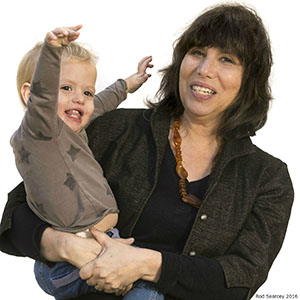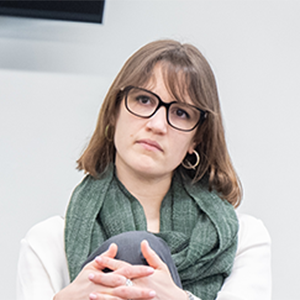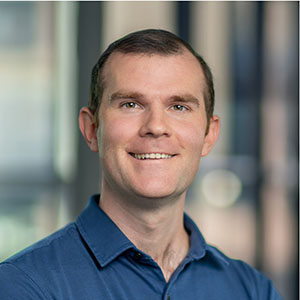
Join us in celebrating 25 years of the Rumelhart Prize
Wednesday, July 30 from 2pm-5pm
Housed in a historic church, The Internet Archive is a non-profit building a digital library of Internet sites and other cultural artifacts in digital form. Their mission is to provide Universal Access to All Knowledge.
Learn more at https://archive.org/about/
This year, the Cognitive Science Society marks a milestone: 25 years of the David E. Rumelhart Prize, celebrating foundational theoretical contributions to the field of cognitive science. To honor this legacy, CogSci 2025 will host a special preconference symposium event on July 30th featuring a lineup of visionary thinkers whose work exemplifies the Rumelhart Prize’s spirit. Together, they offer a cross-generational and cross-disciplinary view of cognitive science — from early cognitive development to the future of AI.
Join us in a historic setting in San Francisco for an exciting event celebrating the Prize and the historical and contemporary legacy of the work of David E. Rumelhart.
Additional information on the David E. Rumelhart Prize and its past winners is available here.
Getting there
Complimentary charter buses to the event will be available for registered participants and will depart from the Marriott Marquis at 1:15pm on the day of the event. Charters will operate on a first come, first serve basis.
Registration
Event registration available as part of the CogSci 2025 conference registration.
Cost: $40 (includes light refreshment)
Schedule/Program
1:30pm: Registration Desk Open
2:00pm: Opening Remarks
2:10pm – 3:00pm: Talks
Jay McClelland – The Scientific Legacy of David Rumelhart
Ellie Pavlick – Compositionality in neural networks: Where are we now?”
3:00 – 3:30pm: Coffee Break with light refreshments
3:30pm – 4:20pm: Talks
Tom McCoy – Language and Neural Networks: From Early Connectionism to Modern Artificial Intelligence
Alison Gopnik – Bridging Bayesian theory formation and reinforcement learning: An East-West rapprochement
4:20pm – 4:30pm: Comfort Break
4:30-5:00pm: Panel Discussion
Featured Speakers

Alison Gopnik
University of California, Berkley (2024 Rumelhart Award Recipient)
Alison Gopnik is professor of psychology and affiliate professor of philosophy at the University of California at Berkeley, and a member of the Berkeley AI Research Group. She received her BA from McGill University and her PhD. from Oxford University. She is a leader in cognitive science, particularly the study of children’s learning and development. She was a founder of the field of “theory of mind”, an originator of the “theory theory” of cognitive development, and the first to apply Bayesian models to children’s learning. She received the APS Lifetime Achievement Cattell and William James Awards, the SRCD Lifetime Achievement Award, the APA Distinguished Scientific Contributions Award, the Bradford Washburn and Carl Sagan Awards for Science Communication, and the Rumelhart Prize for Theoretical Foundations of Cognitive Science. She is a member of the American Academy of Arts and Sciences and a Cognitive Science Society, American Association for the Advancement of Science, and Guggenheim Fellow. She was 2022-23 President of the Association for Psychological Science.
She is the author of over 160 journal articles and several books including the bestselling and critically acclaimed popular books “The Scientist in the Crib” 1999, “The Philosophical Baby” 2009, and “The Gardener and the Carpenter” 2016. She has written widely about cognitive science and psychology for The Wall Street Journal, The New York Times, The Economist, and The Atlantic, among others. Her TED talk has been viewed more than 5.6 million times. She has frequently appeared on TV, radio and podcasts including “The Charlie Rose Show”, “The Colbert Report”, and “The Ezra Klein Show”.

James McClelland
Stanford University (2010 Rumelhart Award Recipient)
James L. (Jay) McClelland serves as the Lucie Stern Professor of Psychology and (by courtesy) of Linguistics and Computer Science at Stanford University and as a Consulting Research Scientist at Google DeepMind. Starting 50 years ago, Jay has sought to understand how our human cognitive abilities arise from activation processes taking place among neurons in our brains and how our ability to learn arises from adjustments in the strengths of connections among the neurons participating in these processes. Early in his career, at UC San Diego, Jay collaborated with Dave Rumelhart to develop the Parallel Distributed Processing framework for modeling human cognition, resulting in the two-volume book of that title published in 1986. Subsequently he co-founded the Center for the Neural Basis of Cognition at Carnegie Mellon and the University of Pittsburgh, where he collaborated with others to develop the Complementary Learning Systems Theory of human learning and memory. Jay moved to Stanford in 2006, where he founded the Stanford Center for Mind, Brain, Computation and Technology, which he still directs. McClelland is a member of the National Academy of Sciences and has received many honors and awards, including the Rumelhart Prize in Cognitive Science and the Golden Goose award (jointly with Dave Rumelhart and Geoff Hinton) for their early neural-network based research that became the foundation of today’s neural-network-based AI systems. Jay’s recent interests focus on understanding the many ways in which our human cognitive abilities differ from, and often exceed, those currently exhibited by today’s artificially intelligent systems.

Ellie Pavlick
Brown University
Ellie Pavlick is an Associate Professor of Computer Science, Cognitive Science, and Linguistics at Brown University, and a Research Scientist at Google Deepmind. She leads the Language Understanding and Representation (LUNAR) Lab, which seeks to understand how language “works” and to build computational models which can understand language the way that humans do. Her lab’s projects focus on language broadly construed, and often includes the study of capacities more general than language, including conceptual representations, reasoning, learning, and generalization. They are interested in understanding how humans achieve these things, how computational models (especially large language models and similar types of “black box” AI systems) achieve these things, and what insights can be gained from comparing the two. We often collaborate with researchers outside of computer science, including cognitive science, neuroscience, and philosophy.

Tom McCoy
Yale University
Tom McCoy is an Assistant Professor of Linguistics at Yale University, with a secondary appointment in Computer Science. His research aims to bridge the divide between neural networks, probabilistic models, and symbolic systems: how can we build cognitive theories that combine the complementary strengths of these traditions? He focuses on the domain of language, investigating the representations and inductive biases that underlie human language learning and processing. Much of this work makes contact with neural network language models from artificial intelligence, with the goal of characterizing what these systems have learned and how they operate. He received his PhD from the Department of Cognitive Science at Johns Hopkins, and his PhD thesis received a Glushko Dissertation Prize from the Cognitive Science Society and the Glushko-Samuelson Foundation. He then did a postdoc in Computer Science at Princeton before joining the faculty at Yale. Outside of research, he is an organizer and problem writer for NACLO, a contest that introduces high school students to linguistics and natural language processing.
![]()
The Cognitive Science Society is pleased to announce the establishment of the CogSci Grove which aims to mobilise cognitive scientists to offset carbon emissions associated with their professional activities.
